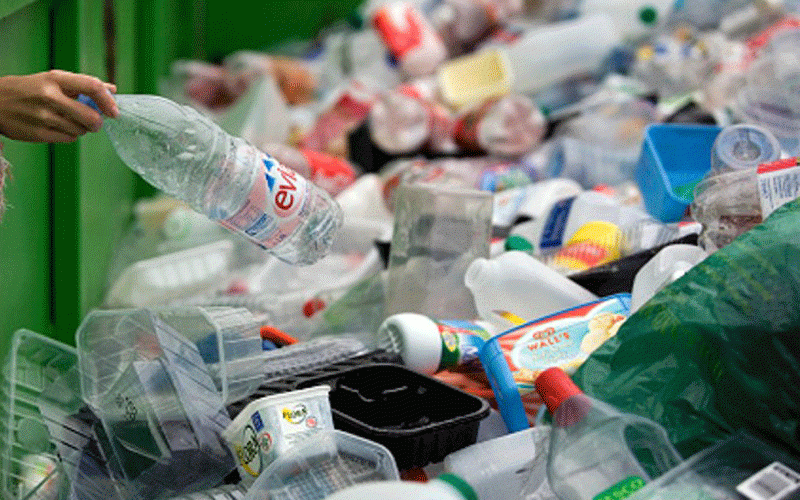
GOVERNMENT has urged companies in the thermoplastic (polyethylene terephthalate (Pet) industry to adopt proper waste management methods to avoid polluting the environment.
Pet is the most common thermoplastic polymer resin of the polyester family mainly used in such containers as soda and water bottles, mouthwash bottles, peanut butter and oil containers.
Appearing before joint Parliamentary Portfolio Committees on Energy, Power Development and Environment, Climate and Tourism, chief director in the Environment ministry Prosper Matondi said waste management organisations were failing to make an impact because of lack of funding.
“A number of companies in the Pet value chain are not willing to engage in meaningful corporate social responsibility for post-consumer waste in the absence of a legal instrument,” Matondi said.
“Less than 12% of the generated Pet waste is being recycled, while all the single plastic is being discharged into the environment without any recovery. Currently, there are over 50 community-based organisations in existence, but they are failing to make an impact due to lack of funding. As a result, they continue to use rudimentary approaches to plastic waste management.”
He said the technological capabilities of managing single use plastics are still very low in the country and to strengthen the capacity, heavy capital injection was needed.
“The concerned companies continue to pay lip-service to these issues and make profits at the expense of communities. This is a major discouragement to other companies who have invested in post-consumer waste management and circularity through the formation of a private company called Petrico-zim.
“Plenty of raw materials remain uncollected, making waste to clog our cities across the country, despite concerted efforts to clean-up through a national programme since 2018,” he said.
- Crippling power outages intensify
- ‘Reduce duty on electric cars’
- Mining economy target dampened
- Low water level threatens power generation at Lake Kariba
Keep Reading
Matondi also said there were economic opportunities in waste beneficiation through value-addition and up-scaling of Pet into a variety of products.
“Back-to-back (bi-directional) value chains are required in this sector because in either way, there are huge economic opportunities for the creation of green jobs, triggering a variety of services with wider benefits,” he said.
- Follow Harriet on Twitter @harrietchikand1











